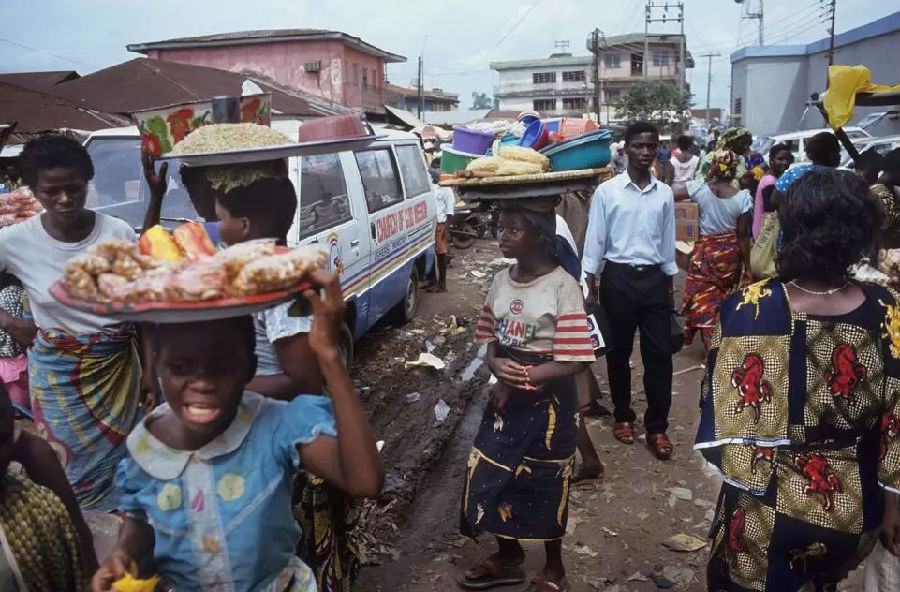排除在外的風險
Including Africa in the search for problematic SNPs has several crucial advantages.
包括非洲在內,尋找有問題的單核苷酸多態性有幾個關鍵的優勢。
SNPs involved in diseases like cancer are usually rare, and a rare SNP found in the genome of someone with cancer could lead a researcher to link the two.
與癌癥等疾病相關的SNP很罕見,在癌癥患者的基因中發現罕見的SNP可讓研究人員將這兩者聯系起來。
But what seems like an uncommon mutation among European genomes may turn out not to be when Africans are added to the mix, says Nicola Mulder, who analyzes genetic data at the University of Cape Town in South Africa.
但是,在歐洲基因中看似罕見的突變當加入非洲基因時,可能并不罕見了,南非開普敦大學分析基因數據的尼古拉·穆德如是說。
That mistake could waste years of effort and lots of money.
那個錯誤可能會浪費多年努力和大量金錢。
A group of scientists once presumed that five genetic variants caused a dangerous thickening of the heart, even going so far as to tell people with those variants that their DNA put them at risk for cardiac troubles.
一組科學家曾假設五種基因變異造成危險的心臟增厚,甚至告訴那些有變異的人其DNA可能會導致他們有心臟問題風險。
But they were wrong.
但他們錯了。
Those five variants were not rare at all and in fact completely harmless.
這五種變異一點都不罕見,且事實上是完全無害的。
If the scientists had included African populations in their work, they might have known.
如果科學家已經把非洲基因囊括進了其研究中,那么他們可能已經意識到了這個問題。
More important, compared with Europeans and Americans, Africans have much better genomes for research, again because of their ancestral age.
更重要的是,和歐洲人、美洲人相比,非洲人有更多可研究的基因,這又是因為他們的祖先處在更早的年代。
Over time, as a genetic material is handed down from one generation to the next, SNPs tend to gather in clusters, making them easier for researchers to find.
隨著時間的推移,隨著遺傳物質從一代傳到下一代,SNP傾向于聚集成簇,使得研究者更容易找到它們。
As a consequence, they are more apparent in older genomes—in other words, African ones.
因此,它們在更古老的基因組中更為明顯——換句話說,是在非洲。
"That can be of use to all populations," says Tishkoff.
“這對所有人群都有用,”蒂什科夫說。
For example, this clustering phenomenon led geneticists to a gene associated with LDL cholesterol (the bad kind) and another related to inflammation.
例如,這種聚類現象導致基因學家發現了一種與低密度脂蛋白膽固醇(一種有害的膽固醇)有關的基因,另一種與炎癥有關。
African genomes have been rubbing up against environmental threats for far longer than any others, forcing the appearance of some surprising traits that may hold vital clues about disease.
非洲基因對抗環境威脅的時長要大于其他地方的基因,這就形成了某些可能意想不到的性狀,可能是治療某些疾病的重要線索。

A genetic mutation that enables us to survive one hazard may also shackle us with a less harmful new trait.
一種能使我們在惡劣環境下存活的基因變異,可能會帶給我們有些小傷害的新性狀。
Take sickle cell anemia: The gene behind this condition also protects against malaria.
以鐮狀細胞貧血為例:導致這種疾病的基因也能預防瘧疾。
Another mutation makes people immune to the parasite behind African sleeping sickness but also increases their risk of kidney disease.
另一種變異讓人們對導致非洲昏睡病的寄生蟲免疫,但也增加了患腎病的危險。
It's not hard to imagine, Tishkoff notes, a mutation that enabled people to survive some menace but also left them predisposed to cancer.
蒂什科夫稱,不難想象,人類因這種變異在某些威脅下生存下來,但也因此易患癌癥。
Though the menace disappeared—say, in the move from East Africa to North America—the variant remained.
盡管這種威脅消失了,比如從東非到北美的遷移,但這種基因變異仍然存在。
These relic mutations could help explain how or why cancer evolved.
這種遺留下來的突變可能會幫助解釋癌癥是怎樣或者說為什么演變的。
"Given the vast genetic variation that exists in African genomes," Rotimi says,
“鑒于非洲基因組存在巨大的基因變異,”羅蒂米說,
"it is likely that we can find genetic variants that are important to cancer that may not be discovered from other human populations."
“很可能我們可以找到對癌癥很重要的基因變異,而這種變異可能不會在其他人群中被發現。”
And just as African genomes can help us recover our collective past, they can also save us from a perilous future.
正如非洲的基因組可以幫助我們找回我們共同的過去一樣,也可以把我們從危險的未來中拯救出來。
Some genetic abnormalities influence how our bodies respond to medications, a field known as pharmacogenomics.
一些基因異常會影響我們的身體對藥物的反應,這是一個被稱為藥物基因組學的領域。
One variant, for example, leaves people with HIV less tolerant to an anti-retroviral drug, a discovery that is changing treatment regimens across sub-Saharan Africa.
如,有種變異使艾滋病毒感染者對抗逆轉錄病毒藥物的耐受性降低,這一發現正在改變整個撒哈拉以南非洲地區的治療方案。
Another messes with the breast cancer drug tamoxifen.
另一種藥物與乳腺癌藥物他莫西芬有關。
The more diverse the genome, the higher the odds of finding mutations that may shape the choice of medication.
基因組多樣化越大,發現決定藥物選擇的基因變異的幾率越大。
"Increasing genomic research in Africa is going to benefit not just people of African descent," Tishkoff says, "but all people."
“在非洲不斷增加基因組研究將不僅造福于非洲后裔,” 蒂什科夫稱,“而且對全人類有益。”
譯文由可可原創,僅供學習交流使用,未經許可請勿轉載。


